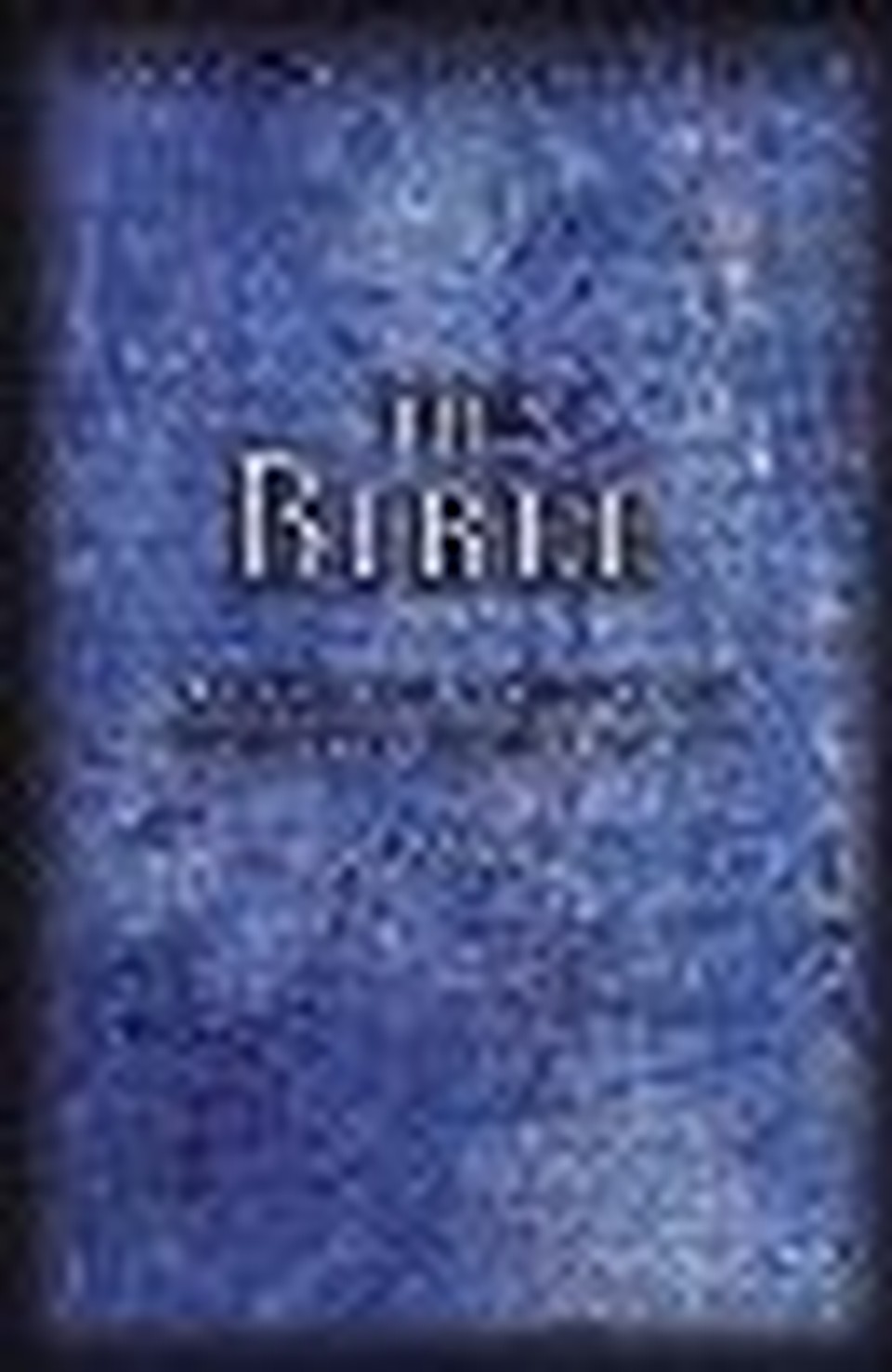Where Does It Err? TNIV Texts That Experts Say Miss the Mark

LOUISVILLE, Ky. — In an initial examination of the full-Bible edition of Today’s New International Version (TNIV) released Feb. 4 by Zondervan, critics say they have found attempts at “gender neutrality” that substantially change the meaning of the passages.
Bible scholar/theologian Wayne A. Grudem and Randy Stinson, executive director of the Council on Biblical Manhood and Womanhood (CBMW) have provided preliminary analysis on the TNIV’s revisions. Grudem is research professor of the Bible and theology at Phoenix Seminary in Scottsdale, Ariz., and is past president of both CBMW and the Evangelical Theological Society.
Following are a few examples provided by Grudem and Stinson:
• Psalm 8:4. The NIV renders the verse, “What is man that you are mindful of him, the son of man that you care for him?” The TNIV revises this to read: “What are mere mortals that you are mindful of them, human beings that you care for them?"
“The singular ‘man’ meaning ‘the human race’ is changed to plural ‘mere mortals,’ wrongly removing the sense of unity of the human race – the Hebrew is singular,” Grudem said. “The Hebrew singular ‘ben’ which means ‘son’, and the singular ‘adam,’ which means ‘man,’ are incorrectly translated with the plural ‘human beings,’ removing the masculine meaning, and thus removing the title ‘son of man,’ which Jesus often used of himself. The TNIV also incorrectly removes ‘son of man’ when this verse is quoted in Hebrews 2:6.”
The change in the text removes the potential Messianic connection, Stinson said.
• Luke 17:3. The NIV reads: “If your brother sins, rebuke him, and if he repents, forgive him.” The TNIV reads: If a brother or sister sins against you, rebuke them; and if they repent, forgive them.”
Grudem points out that translators have inserted the words “or sister,” words which Jesus did not say and are not found in the Greek text. The Bible can say “brother or sister” when it needs to and does in other places such as James 2:15, Grudem said. “I agree, of course, that ‘If your brother sins against you’ also applies to sisters who sin, just as the parable of the Prodigal Son also applies to prodigal daughters, and just as ‘You shall not covet your neighbor’s wife’ also applies to not coveting your neighbor’s husband. But people have easily understood this for centuries: When the Bible uses an example of an individual man or woman to teach a general principle, the principle also applies to people of the opposite sex. We do not have to add the words ‘or sister’ to understand this. We should not add to Jesus’ words things that have no basis in the Greek text.”
• Psalm 34:20. The NIV renders this verse: “He protects all his bones, not one of them will be broken.” But the TNIV changes it to read, “He protects their bones, not one of them will be broken.”
The passage is emptied of its Messianic connection, Stinson says.
• Hebrews 2:17. The NIV reads: “For this reason, he had to be made like his brothers in every way, in order that he might become a merciful and faithful high priest in service to God, and that he might make atonement for the sins of the people.” TNIV: “For this reason, he had to be made like his brothers and sisters in every way, in order that he might become a merciful and faithful high priest in service to God, and that he might make atonement for the sins of the people.”
A problem arises when one is asked to consider how Jesus became like his sisters “in every way,” both Grudem and Stinson said. All Old Testament priests were men and it is certain that the high priest was a man, Grudem said. Therefore, Grudem says the TNIV’s translation borders on creating a knotty problem. “This text does not quite proclaim an androgynous Jesus [who was both male and female],” Grudem says. “But it surely leaves open a wide door for misunderstanding, and almost invites misunderstanding. Meditate on that phrase ‘in every way’ and see if you can trust the TNIV.”
Grudem said it is proper to remove male-oriented words when there is no male-oriented meaning in the original Greek or Hebrew text, but he said the above examples and many others underscore the reason why fidelity to the Greek, Hebrew and Aramaic manuscripts is non-negotiable.
“When there is a male meaning, we dare not under-translate and conceal the meaning just because that emphasis is unpopular today,” he said.
Vern Poythress, co-author with Grudem of “The TNIV and the Gender-Neutral Controversy” (Broadman & Holman, 2004), offers further evaluation of the TNIV’s altered meanings in an article on CBMW’s website. Further evaluation of the TNIV is available at www.cbmw.org.
© 2005 Southern Baptist Convention, Baptist Press. All rights reserved. Used with permission.
Originally published March 10, 2005.




